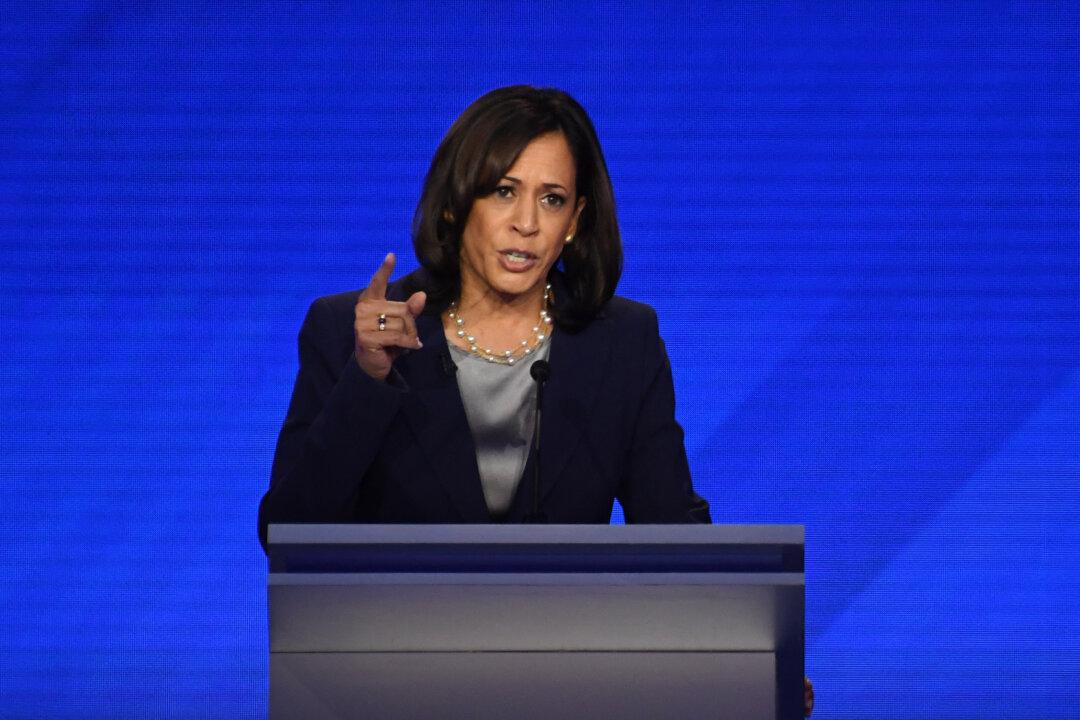Sen. Kamala Harris (D-Calif.) pushed back after a debate moderator criticized her over her record as a prosecutor.
Linsey Davis, an ABC correspondent, told Harris about her recently released criminal justice reform plan: “It does contradict some of your prior positions. Among them, you used to oppose the legalization of marijuana. Now you don’t. You used to oppose outside investigations of police shootings. Now you don’t.”





